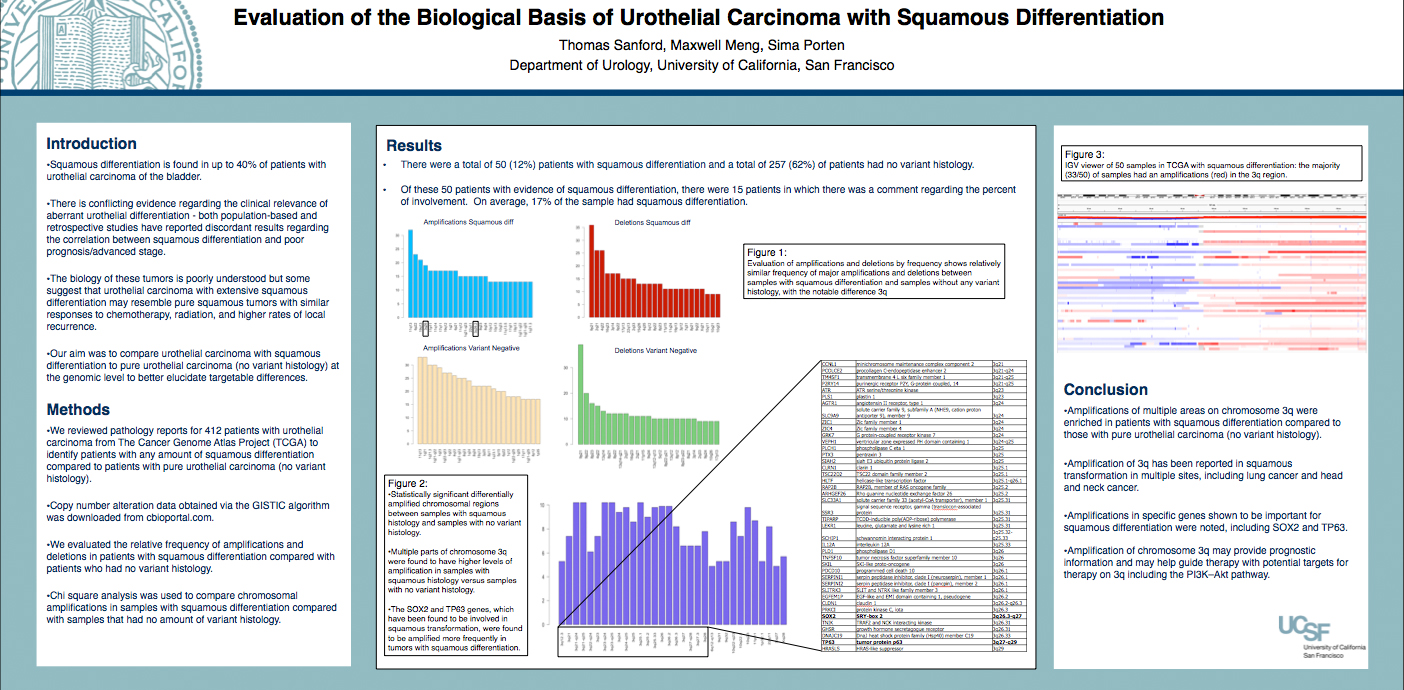
UCSF Urology resident chief Thomas Sanford, MD, along with mentors Sima P. Porten, MD, MPH and Maxwell V. Meng, MD having been working to evaluate the molecular basis of urothelial carcinoma using recent advances in genomics and computational biology.
“Our work began with the clinical observation that urothelial carcinoma tends to present with a higher grade and stage when it develops ureter and renal pelvis (upper tract) than when it develops in the bladder. We postulated that there was something different about upper urothelial carcinoma on a molecular level,” Sanford explained. They began by studying the gene expression profile of tumors in these areas to evaluate the differences between upper tract urothelial carcinoma and bladder carcinoma. The results of this study, noted significant genetic differences between tumors that develop in the upper tract compared with the bladder. One gene, SLITRK6, was highly expressed in upper tract urothelial carcinoma and expressed much less in urothelial carcinoma of the bladder. This is important because there is currently a drug being evaluated in clinical trials that targets the SLITRK6 molecule. Their results were recently published in PLoS ONE on “Molecular Analysis of Upper Tract and Bladder Urothelial Carcinoma: Results from a Microarray Comparison”.
This work was extended to examining the molecular basis of sub-types of aggressive forms of urothelial carcinoma taking clinical characteristics into account. Similarly, their research question stemmed from observations in the patients treated here at UCSF. Since they first began their efforts, data from The Cancer Genome Atlas project has become available. This has allowed them to specifically focus on muscle-invasive urothelial carcinoma with squamous differentiation—a subtype of bladder cancer that has been associated with poor outcome and poor response to chemotherapy. Their results, recently presented at GU-ASCO, highlighted one area of the genome on chromosome 3q that is amplified in this subtype. Chromosome 3q has been shown to have genes that are important for the development of squamous features in multiple different types of cancer including lung cancer and oral cancer. Furthermore, there are multiple genes on this area of chromosome 3 that are potential targets for novel therapeutic agents.
“The poster and article have been a team effort from the beginning,” says Sanford noting that the seeds of this research were planted several years ago. “We are continuing our efforts with an integrative approach to the epigenetics of urothelial carcinoma with lymph node metastasis. The understanding of the molecular basis of cancer is growing at an exponential rate, and we hope to use this knowledge to help us better understand the diseases we treat and identify targets for novel therapies.”
